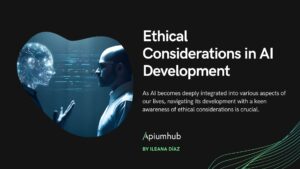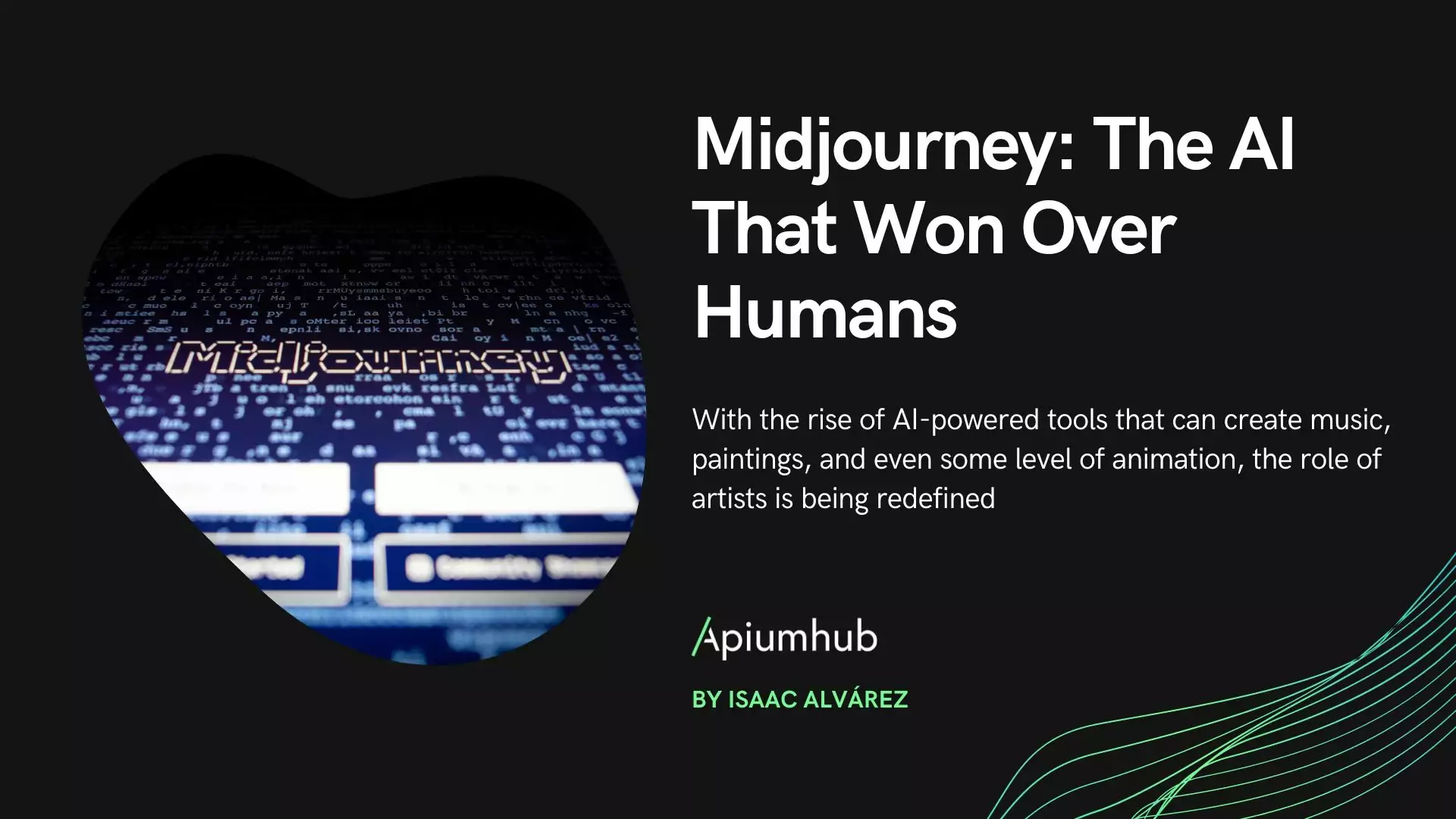Table of Contents
Artificial Intelligence 101 has become a transformative force in many areas of our society, redefining our lives, jobs, and perception of the world. AI involves the use of systems or machines designed to emulate human cognitive ability, including problem-solving and learning from previous experiences.
Since its conception in the mid-20th century, AI has evolved considerably thanks to advances in machine learning, neural networks, and complex algorithms, enabling its application in increasingly sophisticated fields. Today, AI not only facilitates innovations in sectors such as healthcare, automotive, and education but also raises significant challenges and ethical issues ranging from privacy and security to socioeconomic impact and dehumanization risks.
As we move forward, it is crucial that we continue to explore and expand the boundaries of AI with a balanced approach that considers both its potential benefits and associated risks, ensuring that its development benefits all of society.
Artificial Intelligence 101: What is Artificial Intelligence?
Artificial intelligence refers to the ability of machines and computer systems to perform tasks that would traditionally require human intelligence. This includes activities such as pattern recognition, learning, decision-making, and problem-solving. Over the years, the term AI has encompassed a variety of technologies, including machine learning and deep learning, that have revolutionized the way these machines learn and improve their capabilities without direct human intervention.
AI has been applied in multiple domains, from assisting with household tasks to more complex applications such as autonomous driving and managing large volumes of data in sectors such as healthcare and finance. In addition, AI has led to significant developments in generative models, which can create new content based on large data sets, thus opening new frontiers in fields such as graphic design, music, and writing.
Artificial Intelligence 101: Evolution
AI began with basic concepts and theories about how machines could emulate human cognitive processing. During the 1950s and 1960s, the theoretical foundations were laid and the first practical implementations were made, such as programs capable of playing chess or solving simple logic problems.
In the late 1980s and 1990s, the development of neural networks and the birth of deep learning systems marked a renaissance in interest and investment in AI, despite having experienced periods of stagnation known as the “AI winters” due to unmet expectations and technological constraints.
With the advent of big data and advances in hardware during the 2000s, AI began to scale in terms of capability and applicability. Deep learning transformed fields such as natural language processing (NLP) and computer vision, enabling machines to perform complex tasks such as speech recognition, machine translation, and medical image interpretation with unprecedented accuracy.
The most recent and disruptive development in the field of AI is the emergence of generative AI. Starting in 2014 with the invention of generative antagonistic networks (GANs), and more recently with models such as GPT, these technologies have enabled the generation of new and realistic content, from text to images to music, based on patterns learned from huge volumes of data.
Artificial Intelligence 101: Job Opportunities
Artificial Intelligence 101 has opened up numerous job opportunities, ranging from technical to managerial roles, and its impact continues to expand across industries. Here are some of the most prominent jobs in the AI field this year:
- AI Software Engineers: design and develop software applications that use artificial intelligence and machine learning techniques to solve practical problems.
- AI Product Managers: Oversee the development and delivery of AI products and services, ensuring they meet customer needs and are delivered on time and on budget.
- Natural Language Processing (NLP) Specialists: Develop AI models that can analyze and understand human language, facilitating more natural interfaces for human-machine interaction.
- AI Sales Managers: Specialize in marketing AI products and services, working closely with product managers and software engineers to understand and promote the capabilities of AI products.
- AI Consultants: They help companies understand how they can implement AI to improve efficiency, reduce costs, and increase revenue, thereby providing significant added value.
Employment prospects in AI are wide and varied, and growth is expected to continue in the coming years as the technology advances and is integrated into more areas of business. Professionals wishing to enter or advance in this field should consider acquiring relevant technical skills and keeping up to date with the latest trends and developments in AI.
Near Future of Artificial Intelligence
As we move into 2024, Artificial Intelligence 101 continues to transform and expand into new applications and capabilities, promising innovations that could change our lives and the way we interact with technology.
Generative AI in Film and Entertainment: Generative AI is beginning to play a crucial role in the film industry, with major studios such as Paramount and Disney exploring its use to lip-sync in multiple languages and create innovative special effects. The technology is also gaining ground in marketing and training through digital avatars that can automatically generate voice and video content.
AI in Politics and Disinformation: As we approach the 2024 elections, AI-generated disinformation and deepfakes represent significant challenges, with notorious examples of use in political campaigns in countries such as Argentina and Slovakia. The ease of creating fake content with AI is increasing the risk of these types of tools being used to manipulate public opinion.
Multitasking Robots: Inspired by the techniques behind the rise of generative AI, they are building general-purpose robots that can perform a variety of tasks, from cooking to opening doors. This evolution represents a shift toward more general and adaptive models in robotics.
Hardware Development and Model Optimization: With the increasing demand for AI, especially generative AI, there is growing pressure on GPU production and cloud infrastructure optimization. At the same time, model optimization techniques are becoming more accessible, enabling the efficient use of smaller and more powerful models, and making it easier for companies and independent researchers to advance their projects without the need for expensive infrastructure.
Advanced Virtual Agents: Virtual agents are becoming more sophisticated, with the ability to perform complex tasks such as making reservations, planning trips, and connecting to other services. This evolution is expanding the possibilities of automation and multimodal interaction, combining text, image, and voice to offer a richer user experience.
Conclusion
Throughout this article about Artificial Intelligence 101, we have explored the evolution, application, and promising future of artificial intelligence. From its early days as a theoretical concept to its current state, which includes deep learning and generative AI, this technology has revolutionized a multitude of industries.
Jobs in the field of AI are varied and expanding. With the exponential growth of generative AI, roles ranging from machine learning engineers to AI product managers and consultants have been created to help companies integrate these technologies to improve their efficiency and competitive advantage.
One of the most exciting areas of AI development is the video game industry, where generative AI is beginning to make a significant impact. The technology enables the creation of immersive environments that respond dynamically to player actions, generating changing weather conditions, day/night cycles, and realistic ecosystems, making each gaming experience unique.
Companies like NVIDIA are leading the way, using tools like Omniverse Avatar Cloud Engine to create interactive avatars and enhancing character facial animation with technologies like Audio2Face. These innovations not only improve the quality and realism of games but also speed up the development process, allowing creators to bring their ideas to life more efficiently.
Despite the advances, AI also presents challenges, especially in terms of the originality and copyright of the content generated. The implementation of AI in games has led to discussions about the legal complications of using AI-generated content, highlighting the need for careful regulation to ensure that developers have adequate rights to the content they use.
As we move forward, AI will continue to be a field of rapid development and innovation. It is anticipated that generative AI, in particular, will play an increasingly vital role in creating more realistic virtual worlds and personalized user experiences, transforming not only how we interact with technologies, but also industries as a whole.










